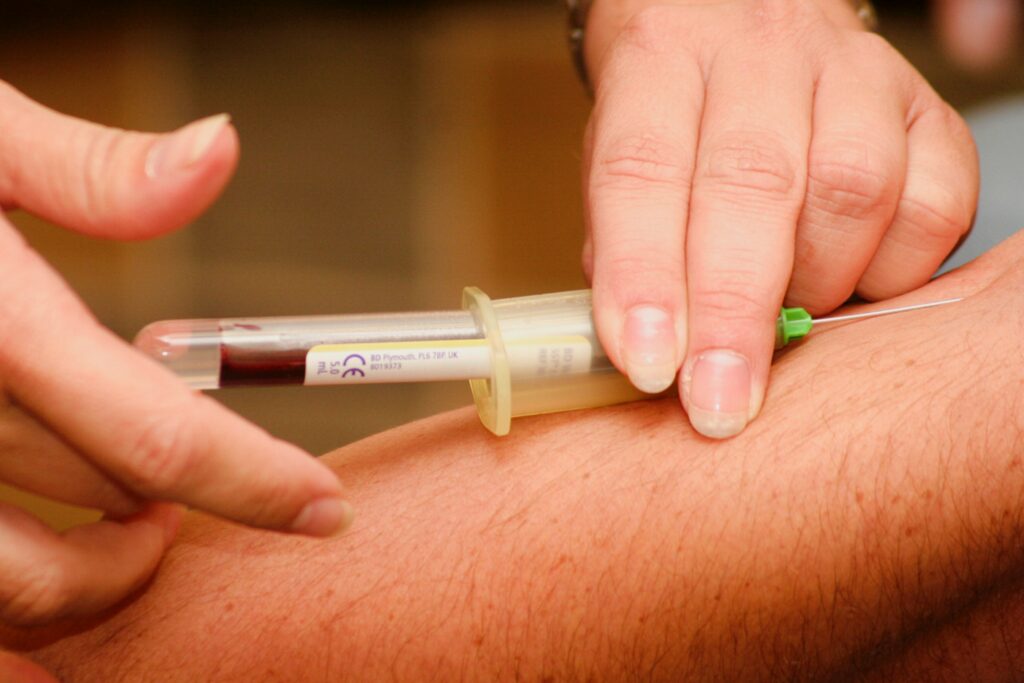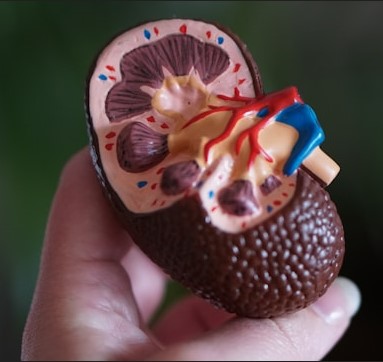On my recent trip to Sanoviv, I discovered a little-known test that gave real insight into my kidney function.
I have been watching my basic lab tests for kidney function like BUN (Blood Urea Nitrogen) and Serum Creatinine and they have been slipping over the years. I thought it was just dehydration.
I found out that a vital indicator of kidney stress can fly under the radar.
In this blog, I’m sharing the kidney function test I never knew about—what it revealed, and why it might be the missing piece in your own health puzzle.
Cystatin C
The Cystatin C with estimated Glomerular Filtration Rate (eGFR) test is a blood test used to assess kidney function. It measures the level of cystatin C, a small protein produced by all nucleated cells in the body, including the kidneys.
Also Known As: CysX Test, CysC Test, Cystatin C Test
The eGFR is calculated using the cystatin C level, along with other factors like age, gender, and race, to estimate the rate at which the kidneys are filtering waste products from the blood. This test is considered to be a more sensitive marker of kidney function compared to the traditional creatinine-based eGFR, especially in individuals with certain health conditions or those who may have muscle mass variations.
When is a Cystatin C test ordered?
A Cystatin C with eGFR test may be ordered when a health care provider wants to assess kidney function in individuals at risk of kidney disease or those with known kidney dysfunction. Some common situations where the test may be ordered include:
- Chronic Kidney Disease (CKD) Monitoring: Individuals with known CKD or those at risk of developing kidney disease may undergo this test regularly to monitor kidney function and evaluate disease progression.
- Elderly Population: As kidney function naturally declines with age, the Cystatin C with eGFR test may be used in older adults to assess renal function more accurately.
- Diabetes Management: People with diabetes are at a higher risk of kidney damage. This test may be used in conjunction with other kidney function tests to assess diabetic nephropathy.
- Drug Toxicity Assessment: Certain medications can affect kidney function. The test may be used to monitor kidney function in patients taking medications that are potentially nephrotoxic.
What does a Cystatin C blood test check for?

Cystatin C is a tiny protein generated by all cells with a nucleus and found in a number of body fluids, including the blood. It is constantly created, filtered from the blood by the kidneys, and broken down. This test evaluates kidney function by measuring the level of cystatin C in the blood.
The glomeruli, clusters of microscopic blood capillaries in the kidneys that allow water, dissolved substances, and wastes to flow past their walls while holding blood cells and bigger proteins, filter cystatin C out of the blood. Filtrate fluid is made up of what goes through the glomeruli’s walls. The kidneys reabsorb cystatin C, glucose, and other chemicals from this fluid. The remainder of the fluid and wastes are transported to the bladder and expelled as urine. The cystatin C that has been reabsorbed is then broken down and not reintroduced to the bloodstream.
The glomerular filtration rate is the rate at which the fluid is filtered. The GFR falls as kidney function declines, whereas cystatin C and other renal function indicators such as creatinine and urea in the blood rise. These levels rise because the kidneys are unable to filter the blood correctly at a regular rate, resulting in their buildup in the blood. Improvements in kidney function, on the other hand, are predicted to lead to increases in GFR, which will result in lower levels of cystatin C, creatinine, and urea as the kidneys are better able to remove them from the blood.
Cystatin C concentrations in the blood are stable while the kidneys are working properly. The concentrations begin to grow as renal function deteriorates. This rise in cystatin C occurs when GFR declines and is generally apparent before kidney function declines significantly.
The cystatin C test has gained popularity as a technique of measuring kidney function since cystatin C levels fluctuate with changes in GFR. Creatinine, a result of muscle metabolism that is detected in the blood and urine, blood urea nitrogen, and eGFR are currently employed tests. Cystatin C, unlike creatinine, is unaffected by muscle mass, race, or diet, leading to the hypothesis that it could be a more trustworthy measure of renal function and so used to provide a more precise estimate of GFR.
While there is increasing evidence and literature to support the use of cystatin C, there is still some debate over when and how it should be administered. However, testing is becoming more widely available, and measures are being conducted to standardize cystatin C results calibration.
All This Time I Thought I Had Dehydration — Until the Cystatin C Test Told a Different Story
For years, I brushed off slightly elevated creatinine levels as simple dehydration. I’d just drink more water, add a pinch of sea salt, and carry on with my day. But something didn’t seem right. Despite staying well-hydrated and eating what I thought was a clean, high-protein diet, my kidney tests were still elevated.
That’s when I discovered the Cystatin C test—a lesser-known but highly sensitive marker for kidney function. Unlike the standard creatinine test, Cystatin C doesn’t fluctuate based on muscle mass, age, or hydration status. It offers a clearer picture of how well your kidneys are actually filtering waste.
When my results came back, the truth hit hard: my kidneys were under stress—not because of dehydration, but because my protein intake was too high for what my body could handle. As a health-conscious individual, I was unknowingly overwhelming my kidneys with excess protein, thinking I was doing something beneficial. The Cystatin C test brought that to light, allowing me to adjust my diet in a way that supported both my goals and my long-term kidney health.
This experience taught me to pay attention to the right markers. If you’ve been chalking up symptoms to dehydration or are on a high-protein regimen, it might be time to dig a little deeper—your kidneys will thank you.
Lab tests often ordered with a Cystatin C test:
When a Cystatin C test is ordered, it’s often part of a broader evaluation of kidney health and related issues. Here are some tests commonly ordered alongside it:

Serum Creatinine
Purpose: To evaluate kidney function.
Why Is It Ordered: To confirm and compare kidney function assessment, as creatinine levels can be influenced by factors like muscle mass, diet, and certain drugs.
Blood Urea Nitrogen (BUN)
Purpose: To measure the amount of urea nitrogen in the blood, which can accumulate in the blood when kidney function is impaired.
Why Is It Ordered: To provide additional information about kidney function and how well the kidneys are removing waste products.
Urinalysis:
Purpose: To analyze various components of the urine.
Why Is It Ordered: To check for abnormalities such as protein, blood, glucose, and signs of infection, which can indicate kidney disease or other urinary tract issues.
Urine Albumin (Microalbumin) and Albumin-to-Creatinine Ratio:
Purpose: To detect small amounts of albumin in the urine, an early sign of kidney damage, particularly in diabetes.
Why Is It Ordered: To evaluate for early kidney damage, especially in conditions like diabetes and hypertension where there’s a higher risk of kidney disease.
Complete Blood Count (CBC):
Purpose: Provides a broad picture of overall blood health.
Why Is It Ordered: To detect signs of anemia or other blood cell abnormalities, which can be associated with chronic kidney disease.
Electrolyte Panel:
Purpose: To measure key electrolytes in the blood.
Why Is It Ordered: To assess electrolyte balance, which can be affected by kidney function.
Calcium and Phosphorus Levels:
Purpose: To measure the levels of calcium and phosphorus in the blood.
Why Is It Ordered: To evaluate bone-mineral metabolism, which can be affected in chronic kidney disease.
Parathyroid Hormone (PTH):
Purpose: To measure the level of PTH, which regulates calcium and phosphorus levels.
Why Is It Ordered: To assess secondary hyperparathyroidism, a condition common in chronic kidney disease.




























